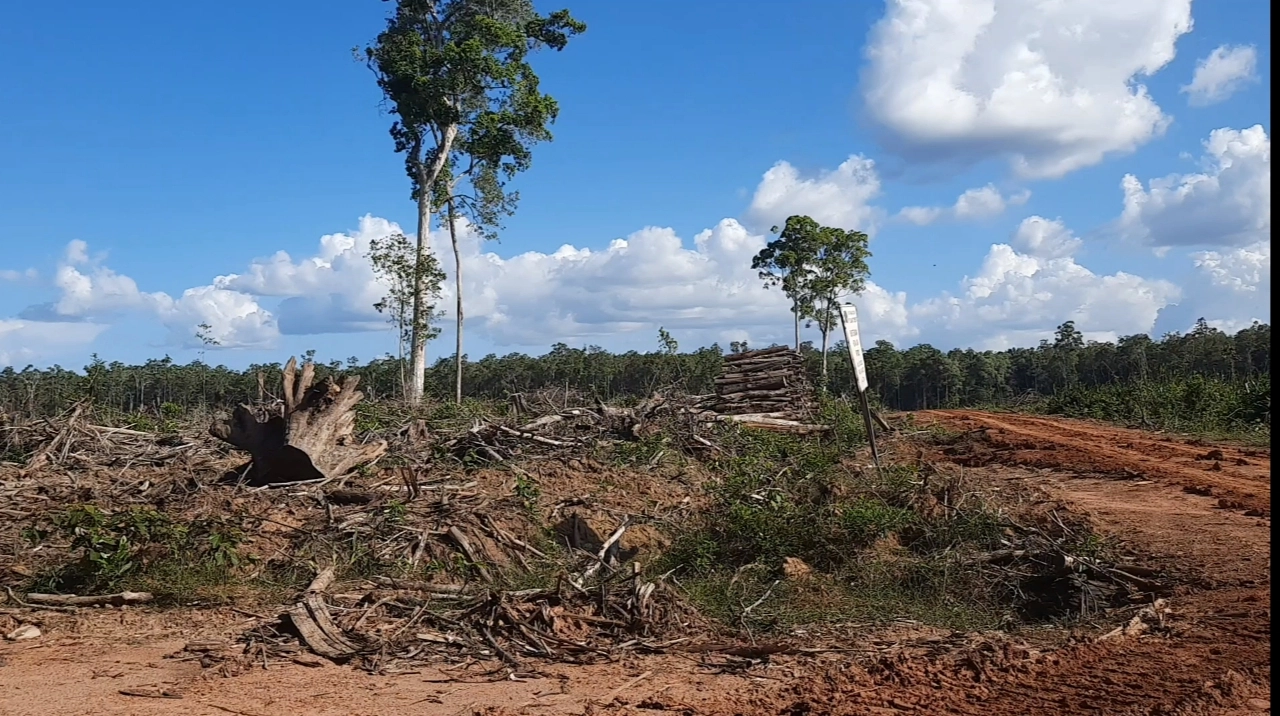Jayapura, Jubi – Harry Woersok from the Vertenten MSC Papua Study Center said the food estate program run by the central government in Merauke Regency, South Papua Province, destroyed the lives of the Marind indigenous people. This was conveyed by Harry as a speaker in an online discussion held by Yayasan Pusaka Bentala Rakyat on Wednesday, December 21, 2022.
Harry said the large-scale investment that entered along with the food estate made thousands of hectares of customary land of the Marind indigenous people, which is a fundamental economic source to the people, annexed by corporations. “It eiminates the sovereignty of the Marind people over their economic resources. It has already happened, we have seen them fall into poverty,” he said.
Harry said the rampant investment has made Papuans, especially the Marind people, increasingly lose their ties to their customary land. Their land has been taken over by the company, resulting in the Marind people losing their source of life.
“That’s a corporate crime, the company really destroyed the lives of the Marind people in the village. Throughout the years, the Marind people have lived with the forests, animals, rivers, all of which are now gone. Passing down land is passing down life,” he said.
Harry said that with the loss of land and forests, the Marind people now depend on rice to fulfill their food needs when previously, they mainly consumed sago and tubers. “Now they eat rice,” he said.
Various trainings were also given to the Marind people. However, these various forms of assistance and training have not improved the welfare of the Marind people.
Harry criticized that aid in the form of goods or the disbursement of money through the Village Fund actually made people lose their initiative, and in the end made Marind people more dependent on these aids.
“Many young men from Senegi were sent to Merauke or Java to learn how to make meatballs and so on. But after they return to the village, they can’t make anything in the village,” he said.
Harry said there must be involvement of all stakeholders to overcome the various impacts of the food estate faced by the Marind people. Harry said his team visited Senayu, Senegi, and Domande villages two weeks ago and conducted organic farming training, distributed plant seeds, and handed out free-range chickens to raise.
Harry said that in 2023 the Vertenten MSC Papua Study Center would collaborate with Econusa and Pusaka to organize a Village School, the alternative school for the Marind community aimed to improve the community’s ability to utilize forests sustainably.
“We start from building the community so that they are able to manage their livelihoods,” he said. (*)













